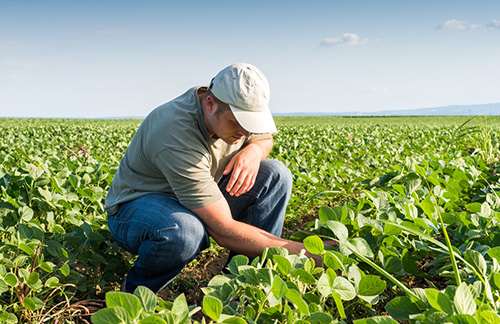
Farming is physically and mentally taxing. While your team is working long hours to finish up as fast as possible, fatigue and soreness will eventually set in. However, that nagging pain might not be soreness, but a musculoskeletal injury instead. Left unchecked, this could lead to lasting pain and discomfort, significantly impeding your future work.
Every day, roughly 100 agricultural workers suffer a lost-work-time injury, according to the Centers for Disease Control. Note that this number is likely averaged out each day based on year-long data analysis. Chances of experiencing a farm-related injury are likely heightened during the busy months—like planting and harvest. Even worse, workers-compensation is not an option for most farmers if they lack the insurance. This only emphasizes the importance of proper farm safety to prevent serious, painful injuries and missed work.
Studies show that farmers are significantly more likely to experience musculoskeletal disorders than the average worker. This likely comes as no surprise to farmers, as farming is tough work. With all the working components and different jobs that go into the agriculture industry, you never know what task or physical work will need to be done. From fixing machinery and operating it to constantly lifting heavy objects, farmers and their farm hands have a lot to consider throughout their day. While accidents happen, there are plenty of ways to help decrease your chances of injury and missed work.
A healthy diet
Soreness is universal in manual labor. A sore muscle or joint is weaker than a healthy one and can lead to overuse injury at the very least, if not something more severe. Many people believe soreness is only a result of physical exertion, but this is not entirely true. While physicality does play a major role, what you eat plays an even bigger role in recovery. A well-balanced diet provides your sore muscles with the right nutrients to repair and even strengthen them. The strengthened muscle can help avoid injury as they will be able to handle more weight, taking pressure off joints and bones.
Improve mobility
Like a healthy diet, mobility also plays a role in soreness. Stretching before and after a hard day’s works can help wake you up in the morning, increase flexibility and even help prevent injury. In addition, stretching a sore muscle can help alleviate the pain.
Have an emergency plan in place
Family, friends, colleagues and anyone you work with should have a plan in place in case you or someone you’re working with is involved in an emergency situation. Make sure to set up a route, a step-by-step plan and way to ensure immediate contact in an emergency situation.
Proper form when lifting heavy objects
Poor form can cause immediate damage to muscles, bones, joints and ligaments. These injuries can keep you out of work for extended periods of time and potentially lead to permanent damages. Some equipment can be awkward to lift; don’t hesitate to use the necessary farm equipment if you are unable to lift an object in a safe manner.
Don’t take shortcuts when working with equipment
Loose clothing can catch on equipment and put you in a dangerous situation leading to permanent damages, always choose tighter or fit clothing. Don’t avoid safety equipment and follow all instructions carefully. Use proper eye protection, along with face masks and respirators when necessary.
Don’t overdo it
Working through fatigue can lead to a handful of musculoskeletal injuries. Eat a well-balanced diet, increase your flexibility and mobility, use proper form and don’t hesitate to use equipment if you are unable to safely lift objects. Using your hand might save time, but an injury will certainly take away your time than getting the job done right.

